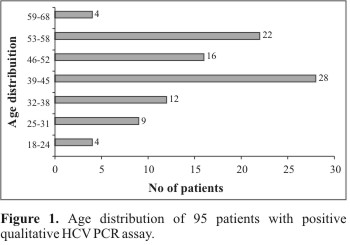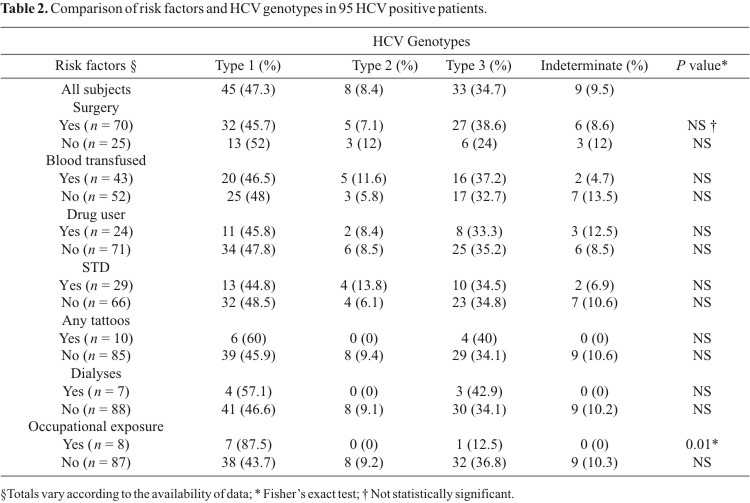Abstracts
The hepatitis C virus (HCV) is classified into six different genotypes and their distribution is different throughout the world. Epidemiologic studies are important to determine several characteristics of the virus, as well as the disease. This study analysed the prevalence of HCV and its genotypes among patients from a leading hospital in Ceará, which is located in Northeast Brazil. A total of 119 anti-HCV-seropositive patients, each having previously completed a questionnaire about risk behaviours related to HCV infection were tested for HCV infection using a qualitative HCV polymerase chain reaction (PCR) assay and genotyping by restriction fragment length polymorphism (RFLP). The detection was based on amplifying of the non-coding 5' region. Of the 119 patients, 95 showed positive results in the qualitative HCV test. History of surgery was the most reported risk factor, followed by the use of drugs, having tattoos, undergoing haemodialysis and occupational exposure. Genotype 1 was the most prevalent (46.9%), followed by genotype 3 (34.4%) and 2 (8.3%). The genotype distribution was similar for all of the various risk behaviours.
hepatitis C virus; genotypes; epidemiology; Northeast Brazil; viral hepatitis

 Viral Hepatitis C in a leading Brazilian hospital: epidemiological factors and genotyping
Viral Hepatitis C in a leading Brazilian hospital: epidemiological factors and genotyping

